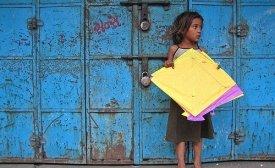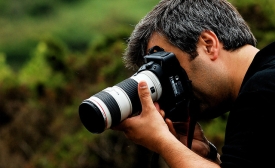digital diplomacy & new tech
Ever wondered which world leader is most followed on Facebook, or Twitter? Should we care? Well, it would seem that the explosion of social media in the last few years and its ability to reach previously inaccessible audiences has not escaped the attention of government leaders.

Share local experiences through photos and videos.
This dearth of policy stands in stark contrast to the role played by an influential State Department policy maker turned Google executive, Jared Cohen, in formulating and facilitating a form of "soft" regime change policy in Egypt during the "January 25 Revolution" known as "digital democracy."
The study, World Leaders on Facebook, is Burson-Marsteller's latest research into how world leaders, governments and international organisations communicate via social media. Over the past eight years, Facebook has emerged as the platform of choice for world leaders and governments to engage with their constituents.
A Gwich'in woman is using social media to get people speaking one of the most endangered languages in Canada. Although nearly 10,000 Gwich'in people live in the Northwest Territories, Yukon and Alaska, a United Nations study estimates just a few hundred fluent speakers of the Gwich'in language are left.

Use photos to create meaningful narratives.
Recent years have seen a growing academic interest in the migration of MFAs (foreign ministries) to social media. However, the majority of digital diplomacy studies tend to focus on the activities of Western and North American MFAs. This Euro- and American-centric approach fails to recognize the fact that digital diplomacy is now a global phenomenon.
As the dust settles after the 2nd annual World Internet Conference in Wuzhen, China, media commentary outside of China has largely focused on President Xi Jinping’s opening statements about “cybersovereignty,” with scholars focusing on the suppressive censorship tactics that this policy is oft seen to represent in China’s domestic cyberspace.







